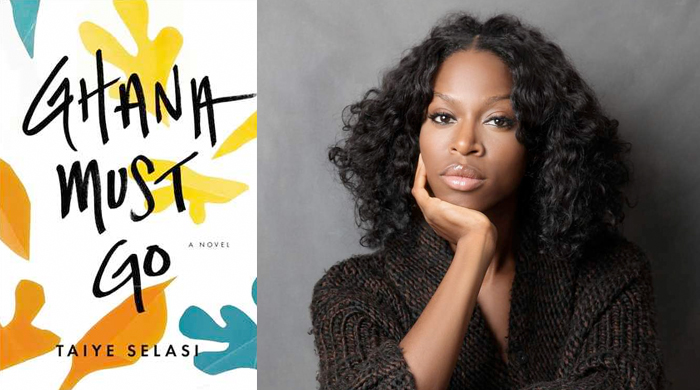Taiye Selasi’s “Ghana Must Go” is exactly the kind of debut novel I love—ambitious in scope and distinctive in performance. Free of strict chronology and structure, and master of story and emotion.
In it, warring cultures breed tragedy of personal and global proportions. A husband and wife’s scarred pasts, unspoken even to one another, unsettle their union. An unjust professional failure precipitates an unnecessary familial one. A father’s absence leads to a son’s distance. A mother’s choice steals her twins’ innocence. An insecure daughter falters in the long shadow of her siblings’ gifts. All set against backdrops as far-flung as Accra and New England, Lagos and New York.
Selasi’s precision in describing the physical, spiritual and psychological terrain of six members of the Sai family and several supporting characters is a marvel of both imagination and execution. The author’s success in knotting each narrative thread to the others with an air of inevitability is a credit to her congruous vision and technical skill.
After reading the novel from cover to cover, I found myself flipping through its 300 pages and pausing at random to reconnect with the family and their multifaceted immigrant saga. I wanted more of them. Their varied, grasping foibles resonate. Wherever I landed, I found sentences captivating enough to plunge me right back into the heart of a scene, an emotion, a character. Selasi’s writing is that luxuriant.
An Artist’s Touch
Selasi handles punctuation and line breaks like a poet—or perhaps like the novel’s carpenter, Mr. Lamptey, wields his tools—eschewing rigid rules in favor of striking, evocative construction.
His house.
His beautiful, functional, elegant house, which appeared to him whole, the whole ethos, in an instant, like a fertilized zygote spinning inexplicably out of darkness in possession of an entire genetic code. An entire logic. The four quadrants: a nod to symmetry, to his training days, to graph paper, to the compass, perpetual journey/perpetual return, etc., etc., a gray courtyard, not green, polished rock, slabs of slate, treated concrete, a kind of rebuttal to the tropics, to home: so a homeland reimagined, all the lines clean and straight, nothing lush, soft, or verdant. In one instant. All there. Now here. Decades later on a street in Old Adabraka, a crumbling suburb of colonial mansions, whitewashed stucco, stray dogs. It is the most beautiful thing he has ever created—
except Taiwo, he thinks suddenly, a shock of a thought. Whereon Taiwo herself—with black thicket for eyelash and carved rock for cheekbone and gemstone for eyes, her pink lips the same color as the inside of conch shells, impossibly beautiful, an impossible girl—sort of appears there in front of him interrupting his performance of The Considerate Husband, then goes up in smoke. It is the most beautiful thing he has ever created alone, he amends the observation.
The fragments, idiosyncratic line breaks, streams of consciousness captured in type—they all work to punctuate the unfolding drama with rhythm and light and particularity. The writing’s lush bravura elevates the action beyond mere plot and makes quirky individuals of a diverse contingent of first- and second-generation African immigrants—a group too often stereotyped, masked and generalized into obscurity.
Selasi vividly details both people and places, but her real achievement is the interplay between the two—how the places constrain, even define, the people and how the people tint and interpret, but seldom transform or transcend, the places.
Black Like Me?
What I’ll remember most about this book is its variations on the theme of dislocation, cruel breaks that are hard to set right. The Sai children, like the author who created them, have a tenuous relationship with Africa. Their parents are from the continent, but the children were raised in the U.S. with a veil of shame between them and the history that might root them, wherever they may travel.
That’s a heartbreak I can relate to. Thanks to my Kentucky-born mother who goes to Africa every chance she gets, Africa has always been a part of my aesthetic. Art from her recent trip to Ghana adorns walls in my home now, just as drawings and sculpture from her time in Sierra Leone in the ‘60s colored my Ohio childhood.
But Africa has never been a direct part of my experience. Haven’t set foot on its rich soils. Can’t tell you who in my bloodline was last born there, when, or where. I imagine that he or she arrived here by way of the Middle Passage.
Though black, I’m as American as fast food and hip hop. Or, on a good day, as American as jazz—inventive, optimistic, creative in the face of adversity, a charged fusion of folk and pop. And so for me, “Ghana Must Go” expressed a yearning for home that I share and a reverence for Africa that I appreciate. For me, that personal resonance leant extra depth to a book that was already a wonderful read.


